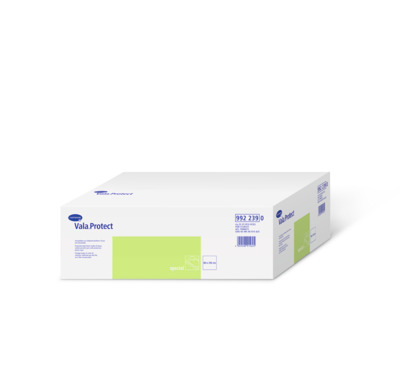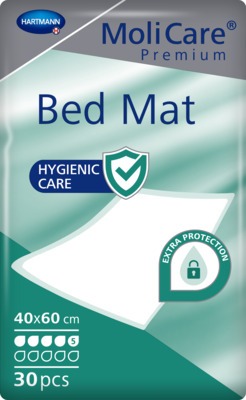Incontinence Advice
Prostate Problems - Causes of Bladder Weakness in Men
In this article, we will look at the issues relating to the prostate gland which may lead to urinary incontinence – a condition that affects countless people worldwide. By understanding the connection between prostate health and bladder control, we can shed light on the challenges faced by those dealing with prostate problems.

Recognising Symptoms of Prostate Problems
Men might experience any of these urinary symptoms:
- Slow or interrupted urine flow.
- Trouble starting urination.
- The need to urinate more regularly.
- Feeling like the bladder isn't fully emptied.
- Leaking pee after peeing or between trips to the bathroom.
- Urgency, feeling the need to rush to pee because the bladder must work extra hard to overcome a blockage.
- Waking up at night one or more times to pee (nocturia).
- Revisiting the bathroom shortly after peeing.
- Burning or discomfort when urinating.
- Pee with blood in it.
- Passing very little or no pee at all (urinary retention). This requires immediate medical attention.
After prostate surgery (also called prostatectomy or Transurethral Resection of the Prostate - TURP), incontinence is a common issue for men. Often, men frequently find this to be the toughest part of the recovery process. We have outlined the main 7 bladder problems in men that discusses signs, symptoms and solutions for men’s bladder problems.
Prostate problems: Causes of bladder weakness in men
How to Control Incontinence after Prostate Surgery
Incontinence can occur after prostate surgery or radiation therapy (for those being treated for prostate cancer). The good news is that doctors and surgeons are working hard to protect the bladder muscles as much as they can.
After surgery, the most common kind of urine leakage is stress incontinence. This often happens to men whose prostate gland has been removed. On the other hand, after getting radiation therapy and treatment, a different type of leakage called urge incontinence might occur. Fortunately, over time, urine leaks tend to get better. Most men see an improvement anywhere between one to six months after surgery.

Helpful tips for Managing Incontinence Caused by Prostate Problems
If you're getting ready for prostate surgery, we recommend having a discussion with your GP. This way, you can learn about the potential side effects and make informed choices.
For those dealing with incontinence due to prostate problems, making a few changes might be helpful. You could consider adjusting your habits, like cutting back on particular fluids, especially before bedtime, or skipping caffeine and alcohol. We have a helpful article on the best bladder friendly drinks to help manage this condition. Exploring Kegal exercises is also worth considering (you can learn more by checking out these pelvic exercises, and don't forget to discuss this with your GP).
5 Types of Prostate Problems
There are many reasons causing issues with the prostate. The main reason is when the prostate becomes larger, which happens to many men as they age.
Another issue that may arise is if the prostate becomes swollen and sore. However, the most serious concern is prostate cancer. These problems can make it hard to control urine sometimes. If you need an operation or radiation therapy to fix your prostate, it might also make it hard to control urine, but that might not last forever.
- Prostate Enlargement (Benign Prostatic Hyperplasia - BPH)
The flow of urine can also become weak, and sometimes, urine might stay in the bladder. In serious cases, the bladder stretches too much, making its muscles weak and raising the chances of leakage. If this occurs, there are incontinence products for men which will help manage this problem. For more information on how to treat BPH, you can check on the NHS website.
- Prostate Inflammation (Prostatitis)
Prostatitis is when the prostate gland gets inflamed, often due to infections or other reasons. This swelling can bother the nearby tissues and interfere with how the prostate works, which can lead to urine problems. Sometimes, it causes a sudden and strong urge to pee, which can be difficult to control. This is called urge incontinence.
- Prostate Cancer and Treatment
Prostate cancer and its treatments, like surgery and radiation therapy, can affect how well you pass urine. When a part or all the prostate is taken out (surgery called prostatectomy), the support the prostate gives to bladder control goes away. The bladder's "stop leaks" muscles can get weaker, making stress incontinence more likely. Stress incontinence means urine can leak when you cough, sneeze, or even lift objects.
- Nerve Problems
Around the prostate are nerves that help control how you empty the bladder. Anything hurting these nerves, like surgery or nerve diseases, can interfere with your bladder control. This can lead to different types of leaks: urge leaks (sudden urge to urinate), stress leaks (when pressure on your bladder makes urine escape), or overflow leaks (when the bladder doesn't empty completely).
- Muscle Weakness and Problems
Prostate issues and treatments can weaken the muscles that control when you urinate. The prostate and its nearby muscles help seal the bladder to stop urine from leaking. But if these muscles get weak because of prostate problems, it's hard to keep urine in, and leaks can happen.
Steps to Regain Bladder Control
Did you know that there are simple, effective ways in which you can maintain control of your bladder whilst handling prostate problems? Here is what you can do:
Exercise Your Pelvic Floor Muscles: Training these muscles can speed up your recovery and lessen leaks. Ignoring them might mean more consistent leakages. Doing pelvic floor exercises both before and after prostate surgery is crucial for your recovery. After the catheter is removed, restart these exercises to prevent bladder discomfort.
Stay Hydrated: Drink enough to quench your thirst. Ask your GP how much fluid is right for you. Cut down on caffeine, alcohol, and fizzy drinks as they could irritate your bladder.
Develop Healthy Toilet Routines
Use the toilet when you genuinely feel your bladder is full – avoid the routine of going "just in case." Following prostate surgery, you might not feel the sensation of a full bladder. Over time, this sensation will come back as you gain the ability to wait longer. It is important to train yourself to retain urine to help your bladder expand its capacity for holding urine.
In conclusion, prostate problems can impact men's urinary health in various ways. It's crucial for men to understand these potential impacts as shown in this article, seek medical advice from a GP, and adopt healthy habits to manage urinary health effectively.

FAQs
How is prostate cancer diagnosed?
Prostate cancer is typically diagnosed through a combination of a digital rectal exam (DRE), a prostate-specific antigen (PSA) blood test, and possibly a biopsy if abnormalities are detected.
What are the treatment options for prostate cancer?
Treatment options for prostate cancer include active surveillance (monitoring the cancer's progression), surgery (prostatectomy), radiation therapy, hormone therapy, and chemotherapy in advanced cases.
Can prostate problems affect sexual function?
Yes, prostate problems like an enlarged prostate or prostate cancer treatments can impact sexual function by causing erectile dysfunction or changes in ejaculation.
How can men maintain good prostate health?
Maintaining a healthy lifestyle, including a balanced diet rich in fruits and vegetables, regular exercise, and avoiding smoking, can contribute to good prostate health. Regular check-ups with a doctor are also important, especially for men over 50.
Sources
NHS. (n.d.) Treatment of benign prostate enlargement. [online] Available at: https://www.nhs.uk/conditions/prostate-enlargement/treatment/ [accessed 04/09/23]

ValaProtect Bed Sheets

MoliCare Premium Bed Mat 5 Drops
<h2>Hygienic care and protection whilst asleep</h2> <p>We are forever looking for new ways to help and improve the lifestyle for people living with accidents in the night no matter what their age. And we know that weeing in your sleep can affect anyone at any age for a variety of reasons, disturbing sleep and causing embarrassment. Add an extra layer of protection with MoliCare® Premium Bed Mat 5 Drops, which is designed to help people managing bladder weakness and incontinence or those caring for children and loved ones. These bed mats offer an extra layer of safeguarding, protecting surfaces from leaks with their waterproof backing and effective liquid absorption provided by the fluff core.</p> <h2>Choose MoliCare®</h2> <p>Key features of using the MoliCare® Premium Bed Mat 5 drops include:</p> <ul> <li>Hygienic, protecting mattresses and added protection for those with bladder weakness and incontinence or caregivers looking after loved ones.</li> <li>Available in various sizes and absorbencies to suit individual needs and preferences.</li> <li>Versatile protection for beds, chairs, furniture, and other surfaces, ensuring cleanliness and peace of mind.</li> <li>Featuring an absorbent core, these disposable bed mats offer an extra layer of security, preventing leaks and spills effectively.</li> <li>Experience discreet comfort with the soft top sheet and cotton-like back sheet, ensuring a pleasant user experience.</li> </ul> <p>MoliCare® Premium Bed Mat 5 Drops is the ultimate reliable and practical solution for bed hygiene and protecting surfaces from any accidents or leaks. Whether for personal use, children or caregiving older adults, these bed mats provide added peace of mind, allowing you or your loved ones to rest comfortably and worry-free. Embrace the convenience and comfort of MoliCare® Premium Bed Mat 5 Drops and ensure a clean and protected environment for all. Order today and receive free standard UK delivery when you spend £50 or more, or opt for next working delivery. Stay safe and secure on the go with HARTMANN Direct and MoliCare®.</p>
MoliCare® Premium Men Pad 4 Drops
<h2>Comfortable and absorbent</h2> <p>Why MoliCare for men? Hers are some of the key features of the MoliCare® Premium Men Pads from Hartmann:</p> <ul> <li>Discreet and comfortable</li> <li>Fits the male physique</li> <li>3-layer absorbent core</li> <li>Fast-absorbing system</li> <li>Anti-leakage cuffs</li> <li>Odour neutralisers</li> <li>Wide adhesive strip</li> <li>Skin-friendly</li> </ul> <p>With an affordable price and great quality guarantee, you cannot regret choosing MoliCare® Premium Men Pad 4 drops, equipped with anti-leak cuffs, and 14 pieces per bag.</p> <h2>Slim and discreet under clothing</h2> <p>MoliCare® Premium MEN Pads offer reliable support for men dealing with bladder weakness. Whether it's stress incontinence or urge incontinence, these pads for men are designed to provide a discreet and quick solution on the go. Simply place the pad before applying your underwear and secure it with the adhesive strip for worry-free protection. MoliCare® Premium MEN Pads offer full coverage for men facing very light to moderate bladder weakness.</p> <h2>Leakage protection for men</h2> <p>MoliCare® understands that each individual's incontinence needs are unique. That's why our incontinence products, including MoliCare® Premium MEN Pads, are available in different absorbency levels. You can find the perfect fit and protection for your specific requirements.</p> <h2>Reliable and soft on the skin</h2> <p>Our body-shaped absorbent pads are designed to deliver dependable and skin-friendly incontinence protection every day. Experience discreet comfort with the soft, cotton-like materials and the added benefit of an odour neutraliser, ensuring you feel fresh and confident throughout the day.</p> <h2>Fast delivery to your home</h2> <p>At HARTMANN Direct, we ensure a fast delivery service for all our products. Enjoy free delivery on orders over £50, making it convenient and hassle-free to receive the incontinence products you need. Our dedicated customer care team is here to discuss your incontinence product needs and answer any questions you may have. Call us today on 0800 028 9470 to experience the comfort and confidence that MoliCare® Premium MEN Pads can provide.</p>
